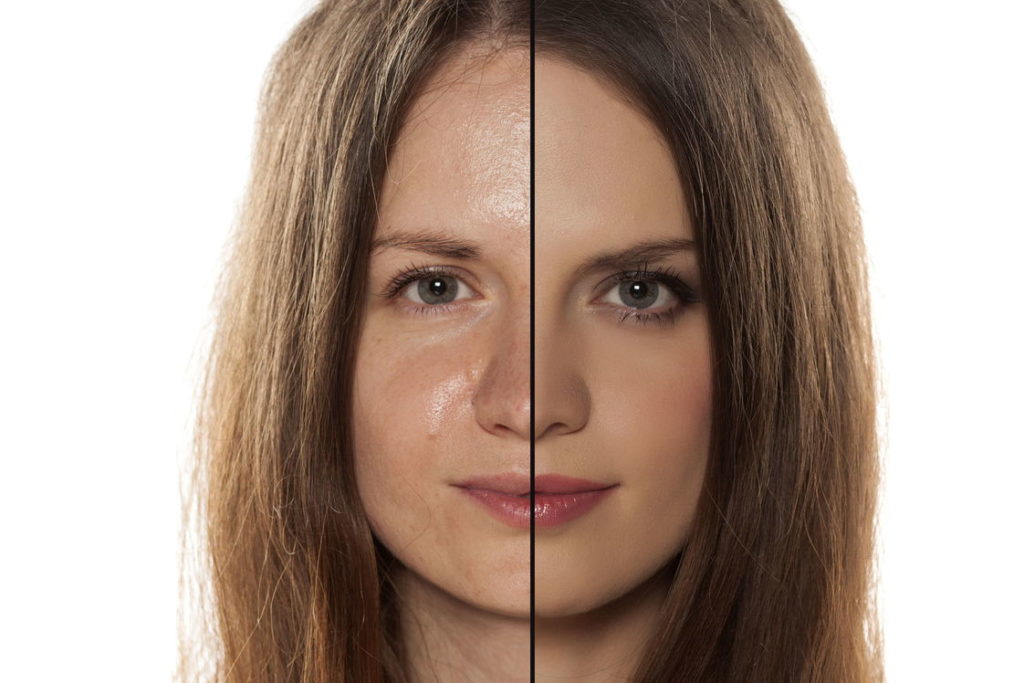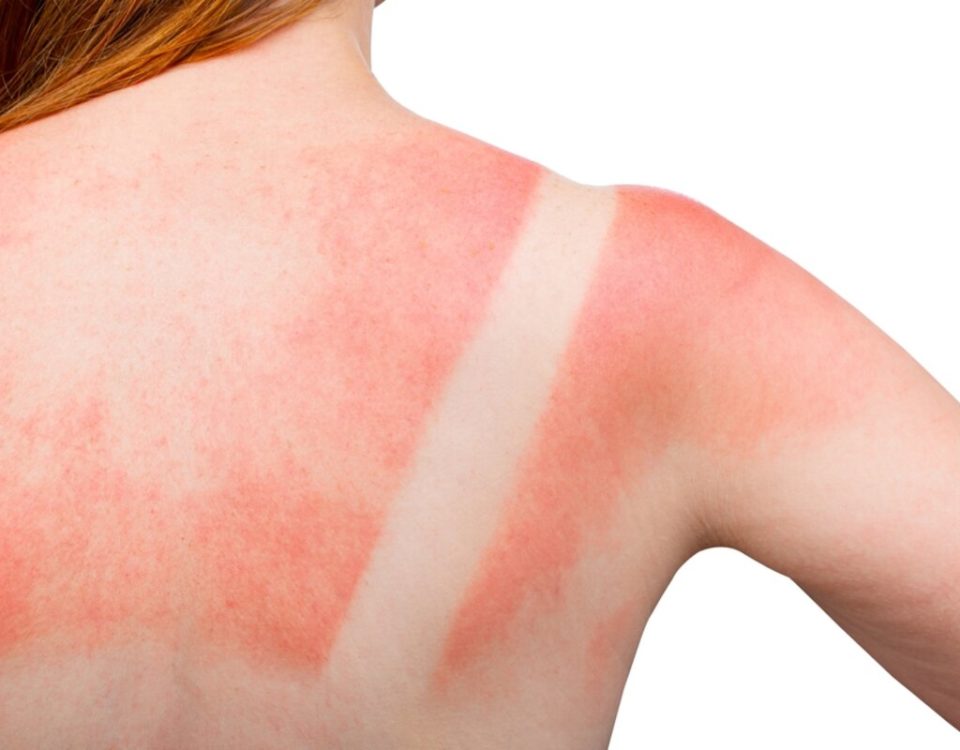
UV Radiation: Damage, Treatment, and Everything In Between
November 16, 2021
Working Out: The Positive and Negative Effects on Skin (And How to Overcome Them)
December 17, 2021You probably think that you know about your skin type, but chances are that you have little knowledge of your skin. There are a lot of stereotypes associated with skin types, and this has greatly influenced the kind of products and routines needed to take care of your skin.
It’s crucial to know about your skin to give it the care and protection it deserves. This post aims to provide detailed insight into the difference between dry sensitive and oily skin, and the best care practices you can adopt.
What Is Dry Sensitive Skin?
People with all four skin types (dry, oily, normal, combination) can have sensitive skin. There are no visible symptoms associated with sensitive skin, but some people with dry sensitive skin experience some discomfort and tightness. They have also reported experiencing hypersensitive symptoms like:
- Pricking
- Burning
- Itching
- Scaling
- Swelling
Distinguishing between dry and sensitive skin can be challenging, since these two conditions often coexist. People with dry skin are usually prone to sensitivity, while those with sensitive skin typically have dry skin. Therefore, it can be challenging to identify the primary cause of dry skin and seek appropriate treatment.
Some of the factors that exacerbate dry sensitive skin include:
#1. Skin Care Choices
Your skincare choices can significantly cause dry sensitive skin. For instance, frequent washing of your face with too hot water strips off the protecting lipids that cause it to dry. Also, using ingredients like menthol and sodium lauryl sulfate in some skincare products can affect your sensitive skin.
#2. Environmental Factors
Overexposure to the sun and lack of proper UV protection can significantly cause dry sensitive skin. Additionally, overexposure to the dry air inside airplanes cabins or lack of humidity inside a space with central heating can affect your skin’s ability to hydrate.
#3. Lifestyle
Some lifestyle choices like smoking and failure to drink water can cause dry, sensitive skin.
What Is Oily Skin?
Oily skin is exactly what it sounds like- skin that excessively produces oil, causing a shiny appearance. People with oily skin types may exhibit a shiny and greasy face that appears later on in the day. Their make-up also doesn’t stay on the face, and the oiler part of their face may have pimples or blackheads.
Oily skin can result from your genetic make-up, local weather, and lifestyle choices. Here is a breakdown of how these factors can cause oily skin.
#1. Genetics
When it comes to genetics, there are chances of having oily skin if one or both of your parents has the same type of skin.
#2. Environmental Factors
If you live in a tropical or humid climate, you’ll most likely have oily skin. However, this condition can change during the winter and fall months compared with the summer months.
#3. Skin Care Choices
Oily skin might give you the urge to wash it multiple times. Over-washing your face removes too much oil from the skin, which can cause the pores to produce more oil to protect your skin from drying.
There’s a wide misconception that a moisturizer causes greasy skin. Using a moisturizer is a crucial part of your skincare routine.

Reasons Why You Should Know About Your Skin Type
Knowing whether you have dry sensitive, or oily skin is crucial in deciding which type of skincare product to use and which would be more beneficial. It prevents using the wrong product, worsening your skin rather than improving it as expected.
Some products can be too harsh for the skin, especially those with sulfates which heighten skin dryness. Sulfates are common in cleansers. A cleanser with sulfate strips water from the skin and creates a buildup for dry cells.
Knowing your skin type also helps you adopt suitable skincare measures that will help keep your skin in the best condition. For instance, the American Academy of Dermatologists recommends that people look for skincare products containing humectants, oils, and butter to protect their dry skin.
Other reasons you should know about your skin types include:
- Adopting suitable meals that will enhance your skin
- Arranging a consultation with a reliable skin care professional
- Adopting suitable DIY skin care routines
How to Take Care of Your Skin Type
The lifestyle measures that you adopt can significantly improve your dry sensitive or oily skin. When it comes to treating your dry sensitive skin, you can adopt the following few tips to keep your skin moist:
- Use moisturizers: moisturizers provide a seal to keep water from escaping. If your skin is dehydrated, you should apply an oil like baby oil when your skin is still moist.
- Use water and lime for bathing: taking long hot baths removes oil from your skin. The best way to remedy this is by showering for ten minutes using warm water.
- Choose soft fabrics: your towel also plays a significant role in causing dry skin. Therefore, choose natural fibers like silk and cotton to allow your skin to breathe.
- Wear sunscreen when outdoors: Be sure to wear sunscreen when you’re outdoors. The best sunscreen should contain zinc oxide and titanium dioxide to prevent acne breakout.
- Eat Vitamin-rich foods: Vitamins are essential for your skin other than mental well-being and maintaining a strong immune system. If you eat foods with the right vitamins and certain vitamin-laced skincare products, you can prevent premature aging of your oily or dry skin. Vitamin deficiency can heavily impact your skin. Ensure that the food you eat is rich in Vitamins A, B, C, and E to keep a healthy skin.
On the other hand, you should use non-comedogenic products that will not block your pores and cause breakouts. It would help if you also used a light moisturizer, especially an oil-free type. You can also look for moisturizers with additional ingredients that help absorb, like starches, clays, and silicone.
Hopefully, this information will help you know whether you have a dry, sensitive, or oilskin. Remember, your skin is the first line of defense to the more delicate internal organs. Therefore, keeping it in the best shape should be on top of your priority list.
Work With a Quality Skin Care Professional to Protect Your Skin
Are you still unsure about your skin type? Are you worried about the skin products you should use? We are here to help. We will closely analyze your skin type and help you choose the best skincare regime. Contact us today and book a skin consultation with our experienced practitioners.
New Clients:
$35 deposit for all new clients
Cancellation/No Show Policy:
$35 fee for all no show, no call and any cancellations less than 24hrs before the start of your appointment.Any prepaid services will be forfeited.
Call us at +1(651)222-4490
Email us at SpaConsultantsMD@gmail.com
or, Schedule a free consultation
We are located on the main level inside of the Blair Arcade Building. We validate parking in the lot connected to the building off of Selby. Be sure to bring your ticket in with you!
Business Hours:
Monday: 9:00am - 8:00pm
Tuesday: 9:00am - 5:00pm
Wednesday: 9:00am - 8:00pm
Thursday: 9:00am - 8:00pm
Friday: 10:00am - 5:00pm
Saturday: 9:00am - 2:00pm (3 Saturdays per month- please call or email for more information)




